The Future of Women and Work
The pandemic has completely upended how we do our jobs. This is Marie Claire's guide to navigating your career in a COVID-19 world.

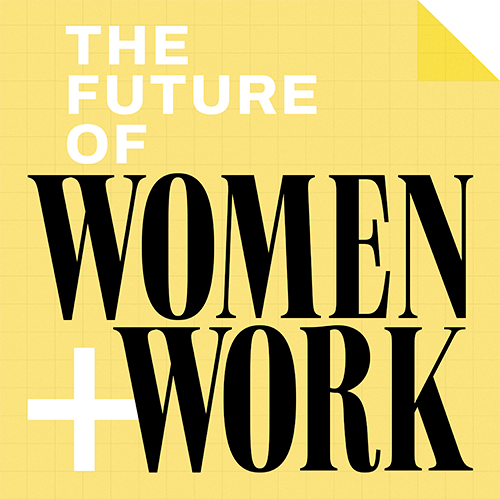
By now, you're aware of how much the pandemic has impacted working women because, well, you've lived it. Still, it bears repeating: Over the past 18 months, women—especially women of color—have been disproportionately harmed, whether forced out of the workforce (before the pandemic, the women labor force participation rate had not been this low since 1988) or confronted with immense pressures, like balancing caregiving duties and the virtual job search.
Women, resilient as we are, have been able to adapt. But there's a misconception that how we've learned to work—remotely, in person with new precautions, or in a hybrid model—is temporary and soon we'll go "back to normal." You haven't bought a home desk yet? Don't worry, you'll be back in the office by Labor Day. Video interviews? Don't sweat 'em, they'll be in-person again once we reach herd immunity. As return-to-office dates continue to be deferred and the realization that this all won't, in fact, be over soon sets in, we are forced to confront our new reality: The way we work now isn't just about the present moment—it's the future. And Marie Claire is here to help you navigate it.
To do this, MC partnered with LinkedIn to get a better understanding of what our readers' work lives have been like over the past year-and-a-half and what they're expecting in the months ahead. Of the 1,132 women and non-binary respondents surveyed* in July 2021, half told us they searched for a new job during the pandemic, with 42 percent saying the job search has been somewhat or very difficult. To help you find your next gig, we created a comprehensive guide to landing a new job in a virtual world.
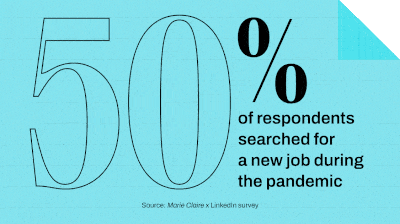
The survey findings also revealed that we're working in a variety of ways right now. Forty percent of full-time respondents are currently working from home, 49 percent are working from a workplace, and 11 percent are working partially remote and partially at a workplace. If you're part of the still-working-from-home crowd, you might be wondering, where did all of my work friends go? In an essay, we explore the nuances of work friendships as they evolve throughout the pandemic and whether or not they'll ever be the same. For those who expect their company will inevitably return to the office or have recently found themselves back in a cubicle for the first time since March 2020, take a peek at our not-so-official guide to returning to the office and get inspired to swap your sweatpants for chic trousers with these back-to-the-boardroom outfits.
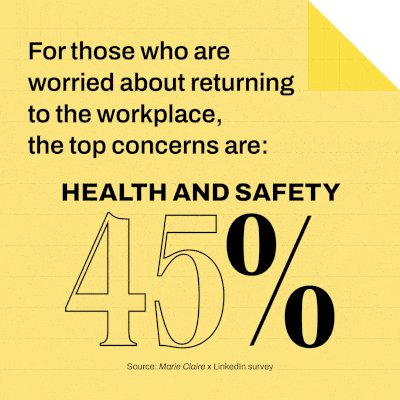
Though some people are excited to reunite with coworkers in person, going back to the office gets mixed reviews from our respondents. Our Marie Claire x LinkedIn survey found that out of the people who worked from home during the pandemic, 41 percent want to remain working from home full-time, 33 percent want to return to their workplace full-time, and 26 percent want a hybrid arrangement, splitting their time between an office and home. Historically excluded groups want to avoid a full return to the office the most. This is presumably due to people of color experiencing microaggressions in the workplace, which working from home has reduced (though online microaggressions are very much still happening). We highlight the role of Black-led coworking spaces in providing a safe haven for women of color.
Then, of course, there are the essential workers who have provided critical services throughout the pandemic. Like teachers, who have faced unique challenges over the past year-and-a-half—from arguing what they're allowed to teach to fighting for classroom mask mandates—while transitioning from virtual to in-person work. Here, a Florida teacher who's immunocompromised explains what it's like having to choose between her job and her health as her county fights against Governor Ron DeSantis's ban on mask mandates in the classroom.
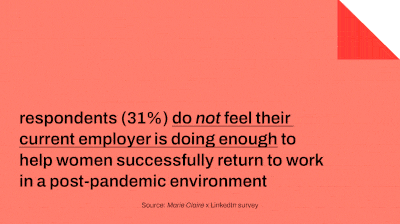
The past 18 months have been incredibly difficult, to say the least, but we hope these stories serve as a reminder of our collective strength. Together, we will continue to reimagine how we do our jobs as we attempt to overcome this once-in-a-lifetime global health crisis—and set an example for better, more inclusive working conditions for the generations to come.
Get exclusive access to fashion and beauty trends, hot-off-the-press celebrity news, and more.
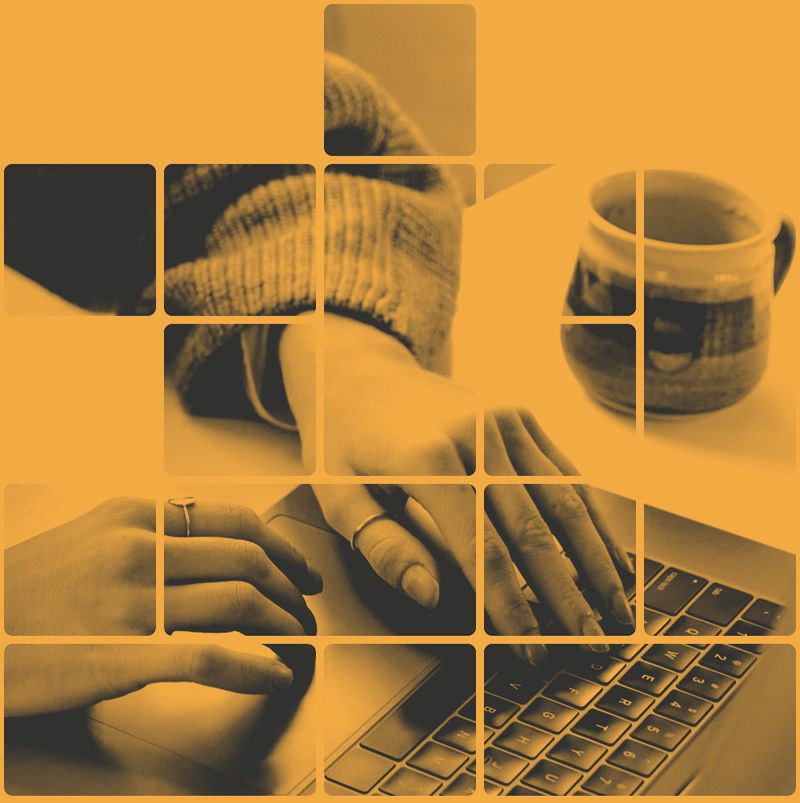
How to Get a New Job in a Virtual World
Your Zoom game has never been stronger.
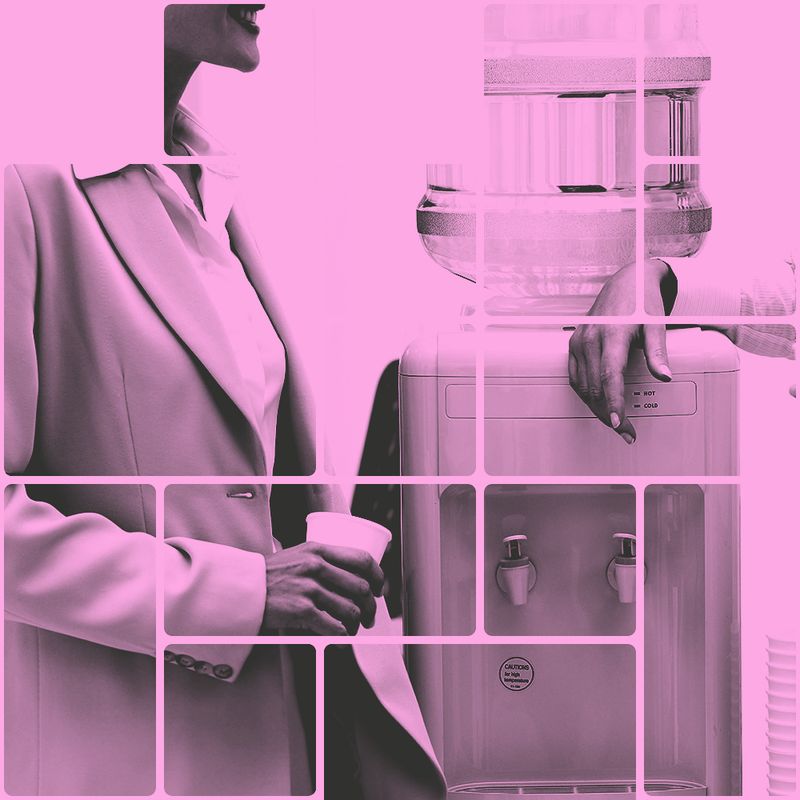
Your (Not So Official) Guide to Returning to the Office
Allow us to help you you figure out work attire, meetings, and how to get through a conversation with that guy from marketing without letting on that you forgot his name.

Outfit Ideas That Will Get You Excited for Work
Lean into power casual.

Black-Owned Coworking Spaces Are Providing a Safe Haven for POC
For people of color, many of whom prefer to WFH, inclusive coworking spaces don't just offer a place to work—they cultivate community.
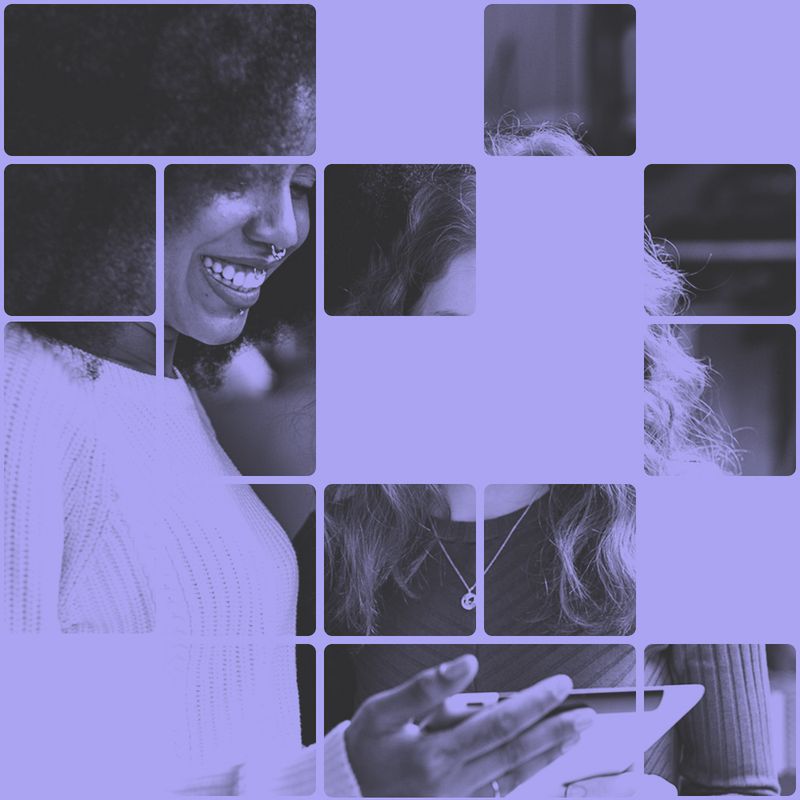
Where Did All My Work Friends Go?
The pandemic has caused our work friendships to evolve. Will they ever be the same?
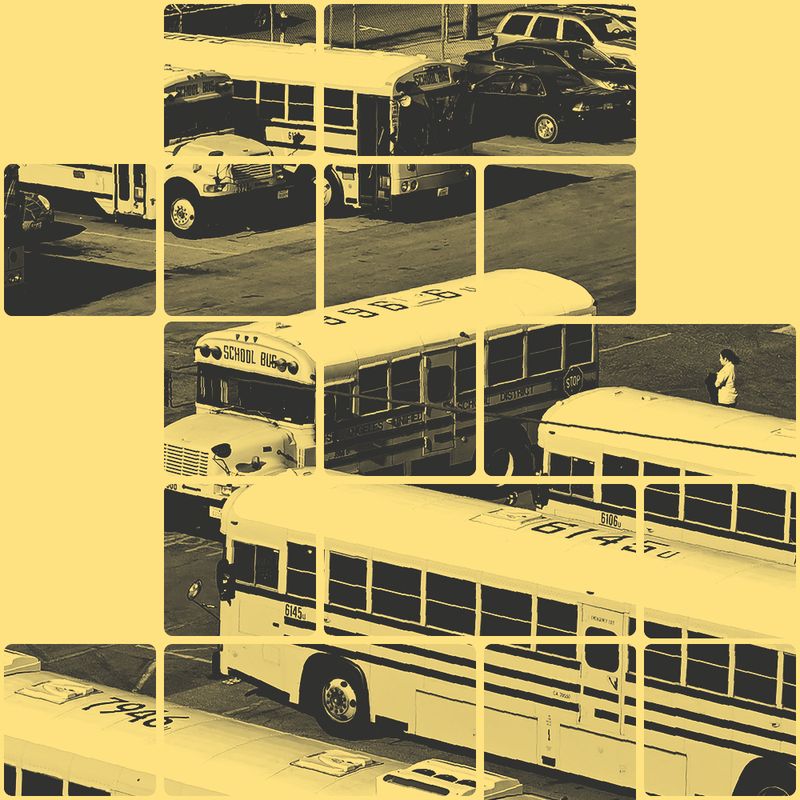
For Teachers, Going to Work Can Mean Life or Death
Stephanie Minguell almost died of COVID-19. When she teaches in the classroom, she’s forced to choose between her health and her students.
*This survey was conducted in July 2021 among a national sample of 1,132 women and non-binary full-time U.S. workers by CensusWide on behalf of Marie Claire and LinkedIn.
Megan DiTrolio is the editor of features and special projects at Marie Claire, where she oversees all career coverage and writes and edits stories on women’s issues, politics, cultural trends, and more. In addition to editing feature stories, she programs Marie Claire’s annual Power Trip conference and Marie Claire’s Getting Down To Business Instagram Live franchise.


